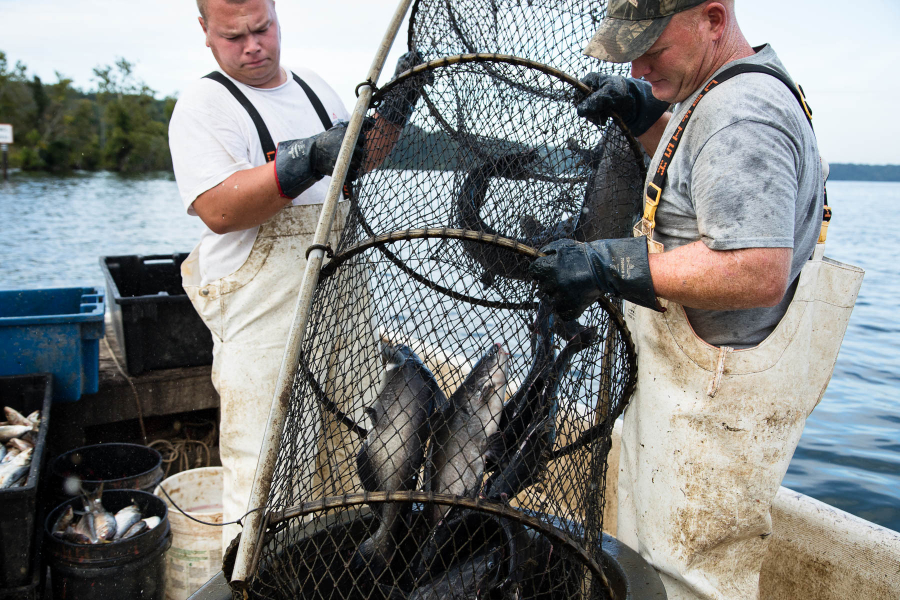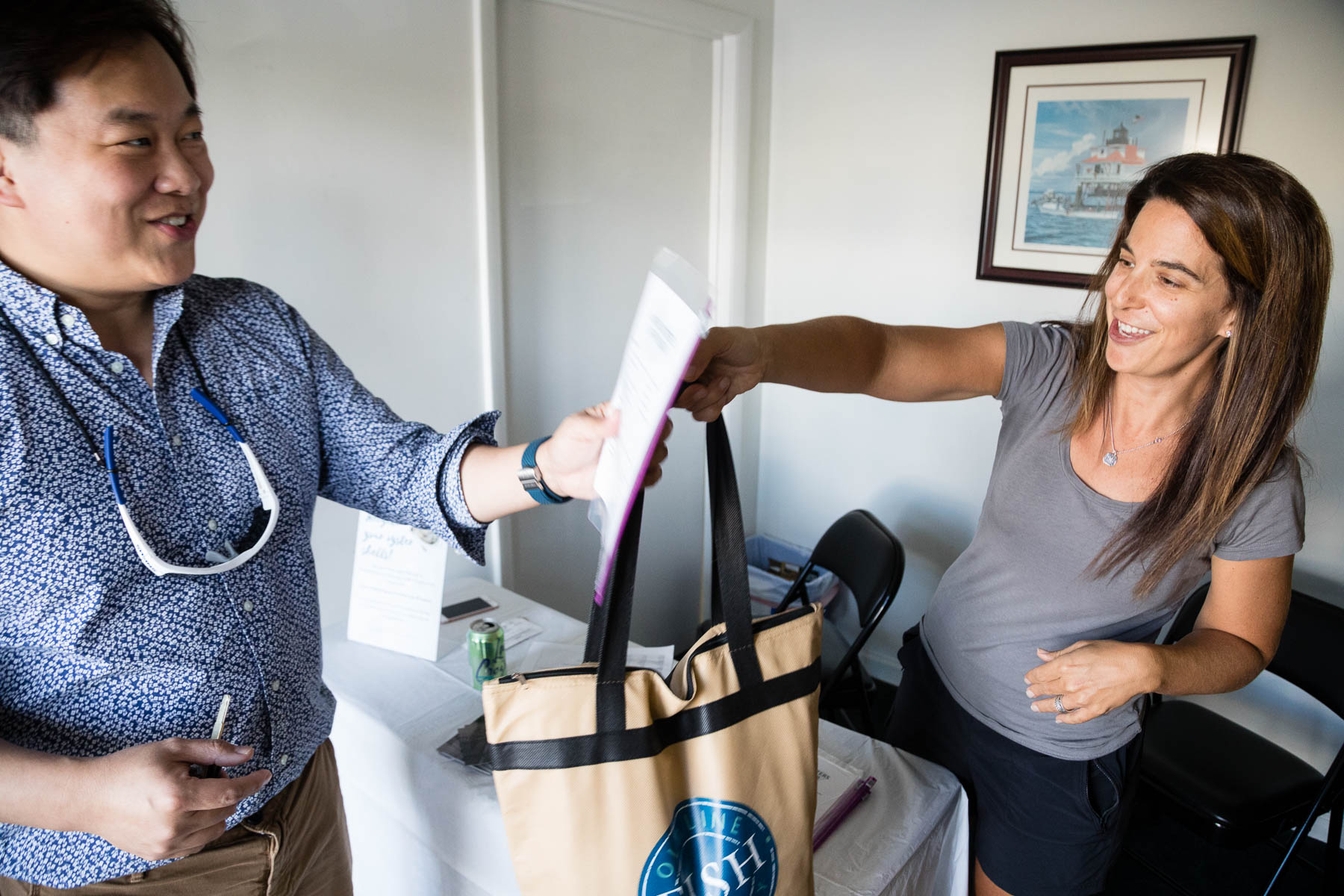Bounty from the Bay
Old Line Fish Company brings the farm-to-table concept to the water

Signs advertising the fresh, local food movement are everywhere these days - “Just picked! From the field! Farm to table!” Corner stores are offering farm stands with seasonal squashes at the register next to the candy bars and scratch off tickets, while restaurants are touting their locally-sourced ingredients and agricultural partnerships. The idea of eating vegetables that spent days riding a truck from the other side of the country is uncomfortable for many. If you are not a member of a Community Supported Agriculture (CSA) program personally, you probably know someone who is. People want food that is fresh and from the local land – but what about the water?
Meet the farm-to-table movement’s salty-aired cousin: dock-to-dish. Like CSAs providing produce to folks without a farm, Old Line Fish Company is the region’s first Community Supported Fishery (CSF), bringing fresh and local seafood to community members who do not have access to the water. Every other Thursday over a 10-week span, Old Line Fish Company program director Kelly Barnes coordinates pickup of safely packed cooler bags containing the Bay’s bounty like soft shell clams, blue catfish, rockfish, oysters and occasional specialty items like Jonah claws. The community, it turned out, was hungry for it.
Debbie Ellen, a CSF member and fresh seafood enthusiast, was keen on the camaraderie that comes about through this community endeavor. “We really look forward to it!” she exclaims, having just picked up her prize on September 5, the last pickup day of the CSF season. “We all get together on Friday to discuss what we got and what we made.”

The “we” includes Ellen and a few of her coworkers at the Maryland Department of Natural Resources, who all joined the Old Line Fish Company’s CSF together and make an event of the pickup. The seafood is always a fresh off-the-boat catch, and the CSF members waste no time in closing the circle from boat to cooler to taste buds. Assisting them in their culinary adventures are recipes for their week’s catch and informational handouts about unfamiliar species in each delivery. “The whole purpose is to get [CSF members] comfortable with the seafood,” explains Barnes.
Barnes became the coordinator of Old Line Fish Company through her work at the Oyster Recovery Partnership, an organization that has been recycling oyster shells and working with the watermen community for years. Seeing the growing demand for fresh seafood as well as the untraversed distance between land-dwellers and watermen, the Oyster Recovery Partnership, with the financial support of the Ratcliffe Foundation, formed Old Line Fish Company. Barnes uses Old Line Fish Company to educate consumers on seafood and to knit more closely the lives of those who live and work in the region.
The final pickup on September 5 included a handout labeled “Meet the Watermen” which told the tale of John VanAlstine, the Maryland commercial waterman who had supplied that week’s portion of striped bass. Beneath the biography and smiling picture of VanAlstine is a paragraph on how striped bass populations are kept at sustainable levels through the cooperative work of the watermen and regulatory agencies such as the Atlantic States Marine Fisheries Commission and the Maryland Department of Natural Resources. The dual purpose of the handout as watermen bio and regulatory fact sheet further promotes the idea of what can be accomplished together: healthy, thriving fish populations; a viable living for the watermen of the Bay; and fresh, local seafood for residents.

Comments
Thanks for reaching out! The local agricultural and watermen communities make the shore a gem of the Chesapeake and we are always happy to learn about other organizations that positively benefit from it. Old Line Fish Company works exclusively as a CSF, without connection to land or an existing farm-based CSA. Bean and Connolly's operation at Pot Pie Farm combining both farm freshness and seafood offerings is a wonderful CSA example, and we would be interested in highlighting it. We will be reaching out to Carol Bean. Thank you for informing us about it!
To my knowledge, the first CSA to incorporate local seafood was started in 2011 by Carol Bean and Mark Connolly of Talbot County, predating Old Line by several years. I've pointed this out every time I encounter another article like this one, but it never seems to stop Old Line from incorrectly claiming they were the first. Here's the proof: an article published in 2011 by the Talbot Spy regarding Bean & Connolly's operation
http://talbotspy.org/new-seafood-csa-at-pot-pie-farm/
Thank you!
Your comment has been received. Before it can be published, the comment will be reviewed by our team to ensure it adheres with our rules of engagement.
Back to recent stories